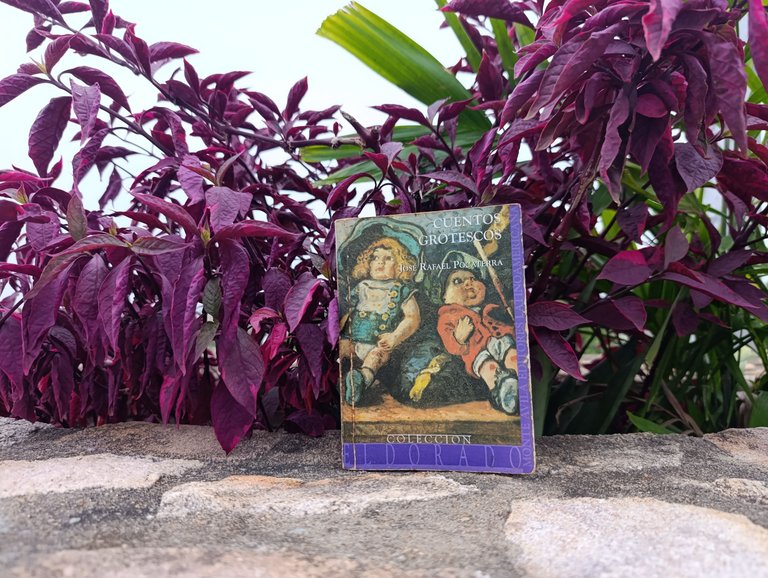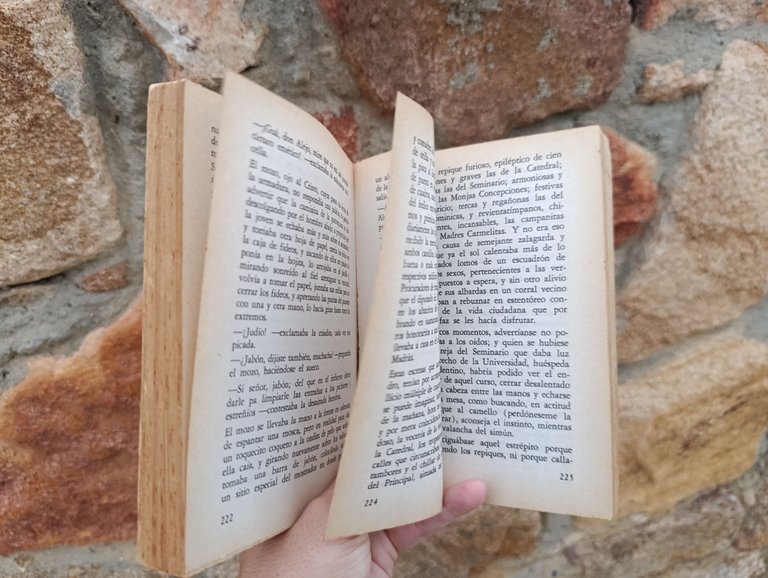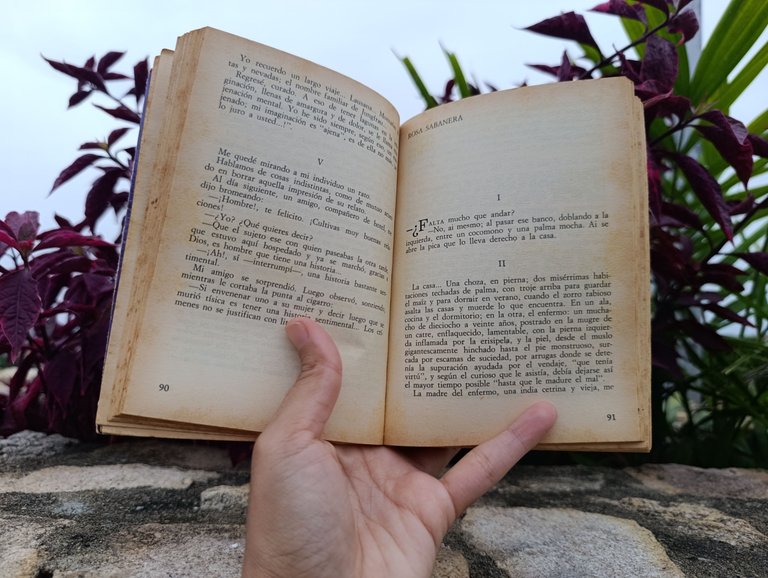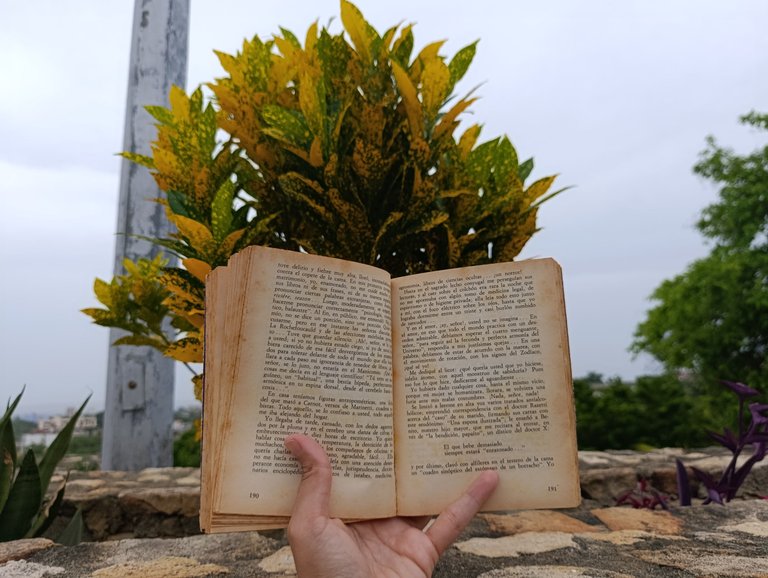I approached a new publication of the book Grotesque tales by José Rafael Pocaterra, to provide a broader view by exposing my arguments from four different stories to those that appeared in the previous post. Pocaterra explores the depths of the soul, but now themes such as prejudice, infidelity and sacrifice are intertwined to weave tragic stories, which manage to shake the reader.

The first text of this selection is The alibi, here the narrator, in brief form, condenses a story where jealousy leads the protagonist to make terrible decisions, which he justifies under the shadow of heartbreak and infidelity. Moral ambiguity permeates the pages, presenting certain reprehensible behaviors as correct. Throughout the story there is an evident tension because the narration pushes the characters to the limit.
On the other hand, in the story The dead eaters, the narrator focuses on misery and poverty through children's eyes. There is a sharper description of reality and also resources such as irony and sarcasm to show a decadent panorama of the society of the early twentieth century, where those who struggle to survive confront a social system that condemns them to oblivion. The narrator intervenes in the story to position himself in a satirical tone and from there raise the story: "No; it is not a story of jackals, hyenas or crows; it is not even a legend of necrophages ...". Thus we are introduced into the story and, at the same time, curiosity is increased to know what happens.

In A woman of much merit, we are presented with an interesting story because the protagonist is a very cultured and intelligent woman, whose husband does everything possible, even getting drunk, to make her modify her behavior, since the order, planning and rigid control of daily life were suffocating love. The couple represents a contrast, she changed when they began to live together, leaning towards studying and adopting a cold personality, a situation that pushes the man towards madness. Underlying the story is a critique of the society that was trying to move towards modernity while dragging prejudices and discrimination.

Finally, in The witch's house, the narrator presents us with a sobering story, being one of the best rated stories of the selection. While reading, I located my references, here old women are usually associated with witches, a product of the stereotype transmitted through books, movies and television, even a dark and mysterious atmosphere is created about them. However, the narrator takes us down another path, at the end presents an unexpected twist where the sacrifice and pain come to light and lead to change the perception of what was happening.

Undoubtedly, Pocaterra gives his characters a deep psychological and emotional charge, besides placing them in complex scenarios, in the midst of extreme situations where he invites us to reflect on social stigmas and prejudices.
Versión en EspañolAbordé una nueva publicación del libro Cuentos Grotescos de José Rafael Pocaterra, para brindar una mirada más amplia al exponer mis argumentos a partir de cuatro relatos distintos a los que aparecieron en el post anterior. Pocaterra explora las profundidades del alma, pero ahora temas como los prejuicios, la infidelidad y el sacrificio se entrelazan para hilar historias trágicas, las cuales logran sacudir al lector.

El primer texto de esta selección se trata de La coartada, acá el narrador, de forma breve, condensa una historia donde los celos llevan al protagonista a tomar terribles decisiones, las cuales justifica bajo la sombra del desamor y la infidelidad. Se advierte que la ambigüedad moral permea las páginas, presentando como acertados ciertos comportamientos reprochables. A lo largo del relato se mantiene una evidente tensión porque la narración lleva al límite a los personajes.
Por su parte, en el relato Los come - muertos, el narrador focaliza la miseria y la pobreza desde ojos infantiles. Se distingue una descripción más aguda de la realidad y también de recursos como la ironía y el sarcasmo para mostrar un panorama decadente de la sociedad de principios del siglo XX, donde los que luchan por sobrevivir confrontan a un sistema social que los condena al olvido. El narrador interviene en el relato para posicionarse en un tono satírico y desde allí plantear el relato: "No; no es una historia de chacales, de hienas o de cuervos; no es, siquiera, una leyenda de necrofagos..." Así nos introducen en la historia y, a la vez, se incrementa la curiosidad para saber lo que sucede.

En Una mujer de mucho mérito, se nos presenta una historia interesante porque la protagonista es una mujer muy culta e inteligente, cuyo marido hace lo posible, hasta emborracharse, para que ella modifique su comportamiento ya que el orden, planificación y rígido control de lo cotidiano estaban asfixiando el amor. La pareja representa un contraste, ella cambió al iniciar la convivencia, inclinándose por estudiar y adoptar una personalidad fría, situación que empuja al hombre hacia la locura. En el relato subyace una crítica hacia la sociedad que intentaba avanzar hacia la modernidad arrastrando prejuicios y discriminación.

Finalmente, en La casa de la bruja, el narrador nos presenta una historia aleccionadora, siendo uno de los cuentos mejor valorados de la selección. Mientras leía, ubiqué mis referencias, acá a las ancianas se les suele asociar con brujas, producto del estereotipo transmitido a través de libros, cine y televisión, incluso se crea sobre ellas una atmósfera oscura y misteriosa. Sin embargo, el narrador nos lleva por otro sendero, al final presenta un giro inesperado donde el sacrificio y el dolor salen a la luz y llevan a cambiar la percepción de lo que estaba ocurriendo.

Sin duda, Pocaterra concede a sus personajes una profunda carga psicológica y emocional, además de insertarlos en escenarios complejos, en medio de situaciones extremas donde se invita a reflexionar sobre los estigmas sociales y los prejuicios.
✓ Own photos, edited with the Foto Collage application.
✓Text translated with DeepL.
✓ Fotos propias, editadas con la aplicación Foto Collage.
✓Texto traducido con DeepL.
Posted Using INLEO